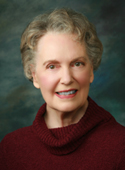The following is the introduction of the “Holistic Medicine” chapter of HealthInform’s Resource Guide to Alternative Health, published by HealthInform, P.O. Box 306, Montrose, NY 10548. Reprinted here with permission. This article was contributed by Suzan Walter, President of the American Holistic Health Association.
Holistic Health is an empowering approach to living LIFE. It starts with the holistic (whole person) philosophy that recognizes the interrelationship between all aspects of who we are and the world we live in. This is combined with an understanding that achieving health is an ongoing personal journey toward a goal of functioning at our very best level possible.
The cornerstone of holism is the concept that the whole is made up of interdependent parts. As human beings we may think of ourselves as made up of separate parts or aspects, such as physical, mental, emotional and spiritual. Yet, our parts do not function alone, but are constantly interacting. What happens to one will impact all of the other aspects of who we are as individuals. In the same way, we are a part of the world around us, and constantly responding to our surrounding environment.
Holistic health involves our everyday choices and actions as we strive to reach a higher level of personal wellness. Picture the various levels of wellness as a continuum. Where are you? On the left half, dealing with an illness or a chronic condition? In the center, not sick, yet not feeling very peppy? On the right half, in good shape, but striving for the highest possible level of vitality and well-being? A holistic approach to creating wellness includes taking charge of your own health by exploring a variety of life enhancing activities until you discover which ones work for you.
While we think of holistic health in terms of our personal actions for self-improvement, the same holistic principles can be applied to dealing with any disease or chronic condition. When these holistic principles are applied by a healthcare practitioner, it is usually calledholistic medicine. In addition to the concepts already mentioned, other factors are added. The healthcare professional and the patient work as partners. Rather than just eliminating or masking symptoms, the symptom is used as a guide to look below the surface for the root cause. Whenever possible treatments are selected that support the body’s natural healing system.
In holistic health and holistic medicine notice that holistic is always an adjective. Holistic is an approach or philosophy that is applied to something. Keeping this in mind, you can understand that the holistic approach can be applied to any healthcare healing tradition–both the conventional (or allopathic) medical model taught in most Western medical schools and the complementary (or alternative) healing traditions, such as acupuncture, chiropractic, homeopathy, massage therapy, and naturopathy. Therefore, it is possible for some medical doctors to be holistic in how they deal with their patients, and it is true that not all practitioners using alternative therapies are holistic. If you want a holistic healthcare professional, you as the patient should check out both technical expertise and licensing andwhether the practitioner uses holistic principles.
If you are interested in a career as a holistic practitioner, you must first become qualified in one or more methods of delivering healthcare, such as chiropractic, massage therapy, medicine, naturopathy, or psychology. Then you add on the holistic qualities and philosophy.
Applying the mind/body/spirit principles of holistic health is facilitated by a balancing of personal responsibility and self-empowerment.
Use of this material requires written permission from the American Holistic Health Association. Contact Suzan Walter at (714) 779-6152 or mail@ahha.org.
